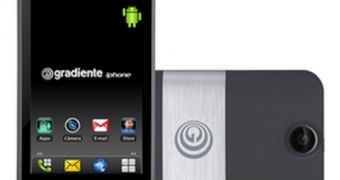Brazilian regulators sided with Gradiente in a trademark investigation that revealed the company has filed for the iPhone mark as early as in 2000, six years before Apple. The decision by the INPI resulted in full rights for Gradiente to sell phones dubbed “iPhone” running Android.
Apple can continue to sell iPhone-branded handsets in Brazil, but the Institute of Industrial Property (INPI) decided that Gradiente Electronics can sue Apple for exclusivity in Brazil, South America's biggest smartphone market.
The Institute tells BBC that its decision only applies to handsets, adding that Apple is more than free to use the iPhone brand in Brazil to sell things like clothes and other products – a laughable claim, but a necessary one to make matters clear about the iPhone trademark owned by Gradiente.
The INPI’s Marcelo Chimento said, “I can confirm that INPI published today its decisions about eight trademark applications related to iPhone, from Apple: four applications were rejected and other four were approved.”
The agency spokesman added, “Some were rejected because a Brazilian company, Gradiente, made an application for G Gradiente iphone in 2000 and it was approved in 2008.”
Chimento noted that Apple’s applications were denied because “Gradiente had a very similar register for cell phones applied some years before the American company.”
Apple had started its applications for iPhone in 2006, one year before Steve Jobs unveiled the original version of the handset at Macworld.
“The trademarks approved today for Apple were related to other classes, such as education, software development and advertising. Since they are in other classes, different from communications and telephones, they could be approved,” Chimento added.
Apple of course appealed the INPI’s decision, arguing that it should have full rights over the iPhone mark since Gradiente has only been selling “iPhones” since a couple of months ago.
The INPI could cancel Gradiente's registration through expiration, as it hasn’t used the name within a five-year limit, according to the BBC.

 14 DAY TRIAL //
14 DAY TRIAL //